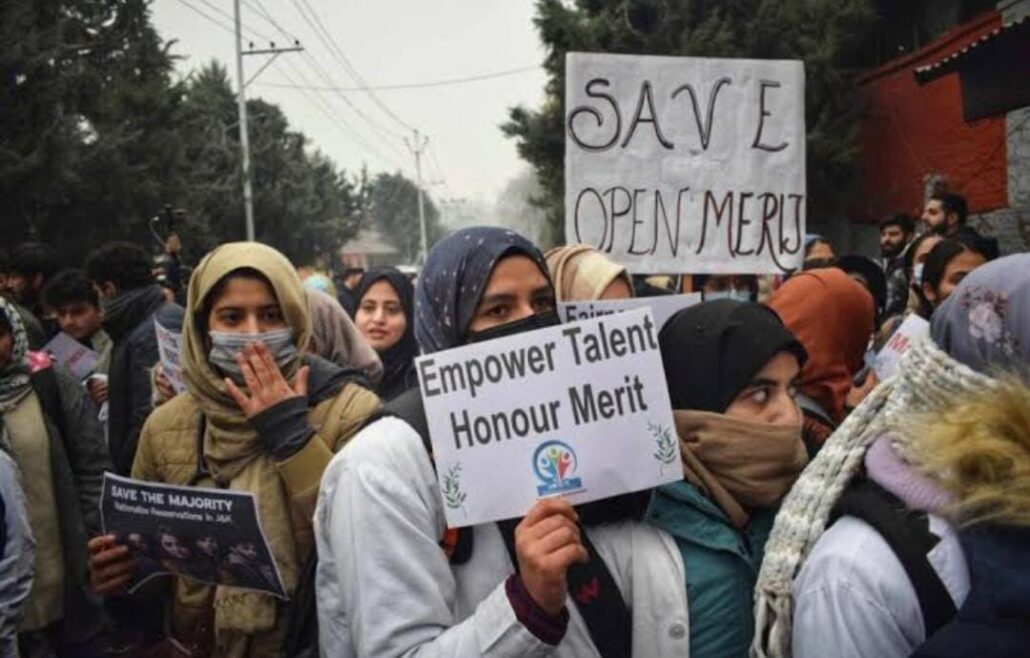
Kashmiri legislator Dr. Bashir Ahmad Veeri has announced plans to introduce two crucial legislative proposals in the Jammu Kashmir assembly.
Dr. Veeri, who represents the Bijbehara assembly segment in Anantnag, said that one bill aims to cap reservation quotas at 40 per cent for reserved categories and 60 per cent for open merit and the other bill is focused on the preservation and protection of the Jhelum River.
Speaking to The Kashmiriyat, Dr. Veeri emphasized that the reservation bill aims to strike a balance between social justice and merit, addressing concerns that have fueled protests across Jammu Kashmir.
In recent years, general category candidates have accused the system of favoring reserved categories, particularly in government job appointments.
While some claim that nearly 70 per cent of people in the region belong to the general category, the absence of a caste census has made such assertions unverifiable.
Meanwhile, several tribal activists have strongly condemned the recent extension of reservations to new social groups, arguing that it dilutes their already limited opportunities.
Many have demanded a caste census to bring clarity to the debate and ensure fair policy decisions.
Experts say the issue is far from black and white, as it appears on social media.
“Unlike other Indian states, Jammu Kashmir remains a fragile region where affirmative action policies are deeply tied to its social and political fabric,” Fahim Ahmad, a sociology expert said.
He added that Any changes to reservation policies are viewed with caution, as they could disrupt the delicate balance that successive governments have sought to maintain.
“This is not an issue that the political spectrum across India wants to tinker with lightly,” Fahim noted, adding that reservations remain essential in a region marked by historical and socio-political complexities.
Alongside the reservation bill, Veeri’s second proposal seeks to tackle the worsening state of the Jhelum River, a lifeline of the valley that has suffered from pollution, encroachment, and declining water levels.
Experts have raised alarm that unchecked urbanization and environmental neglect have weakened the river’s flood absorption capacity, increasing the risks of both drought and devastating floods.
Earlier, The Kashmiriyat, reported that MLA Bashir Ahmad Veeri is set to introduce the Karewa Protection Bill, aiming to safeguard Kashmir’s ancient Karewas from unregulated mining and environmental degradation.
The bill proposes strict regulations on excavation and mandates Environmental Impact Assessments (EIA) before granting mining leases.
The bill, set for introduction in the upcoming assembly session, also seeks to designate certain Karewa lands as ecological zones to prevent further destruction of these vital plateaus, which support agriculture and groundwater recharge.




